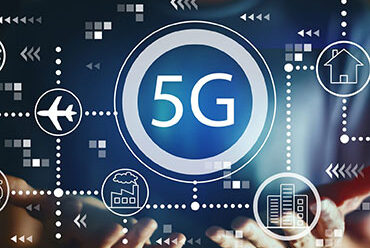How 5G Will Radically Alter the Future of Finance
How 5G Will Radically Alter the Future of Finance
The future of the financial sector lies in mobile transactions. A strong and fast network like 5G will make such transactions feel seamless and routine. It will only take a matter of seconds for financial institutions to verify the credit information of a borrower and approve a loan advance through the phone. The new network will merge more easily with artificial intelligence used to safeguard client information.
5G is likely to cause a financial evolution instead of a revolution. A revolution refers to a total overhaul of existing systems and replacement with new systems. The 5G network is evolutionary because it can coexist with established telecommunication and financial systems. Before the coronavirus pandemic, banks were in the process of streamlining their services and moving things online to improve customer experience. The current situation is speeding the process.
Banks have traditionally relied on dial-up machines with a special phone line for ATM transactions. This method limited the placement of ATM machines to areas with good connectivity and telephone signals. With 5 G connectivity, banks can offer ATM services in remote areas. The technology will allow financial services to reach more people.
Today, most millennials prefer to use automated payments instead of cash when purchasing items. 5 G will enable flawless transactions through digital devices such as smartwatches, smart bands, smartphones, and other internet-of-things (IoT) devices.
5G can also lead to the development of more pop-up branches. The network allows easy transfer of data to the cloud. That means the cost of setting up pop-up branches can reduce significantly because financial institutions won’t need onsite servers.
Modern chatbots are limited because they can only answer a preset set of questions. However, there are technologies that can make chatbots smarter and more responsive. Machine learning can help chatbots learn from customer behavior and transactions. As a result, the chatbot gives a more comprehensive response to a question. These chatbots are great for customer service and can help banks get more clients. 5 G technology is required for such technology to exist.
Banks are also looking into using augmented reality to conduct virtual meetings. The technology makes the client feel as if they’re in the same room with the bank representative. Augmented reality can also be used to show educational content to clients. At the moment, it’s expensive for banks to use this technology due to the high latency costs. The deployment of 5G networks will make it less costly.
The financial sector also includes insurance companies. When someone makes a claim, the insurer sends someone onsite to assess the damage. The process usually takes a while due to logistical challenges. With 5 G, it will be possible for the insurer to complete the process within a day. Instead of sending someone, the institution will send a drone operated remotely and assess the situation that same day.
5G technology will be a blessing in disguise for the financial sector. It will allow financial institutions to support fast and secure mobile transactions, operate popup banks, and use artificial intelligence to improve customer service. It will also facilitate the fast processing of claims.





